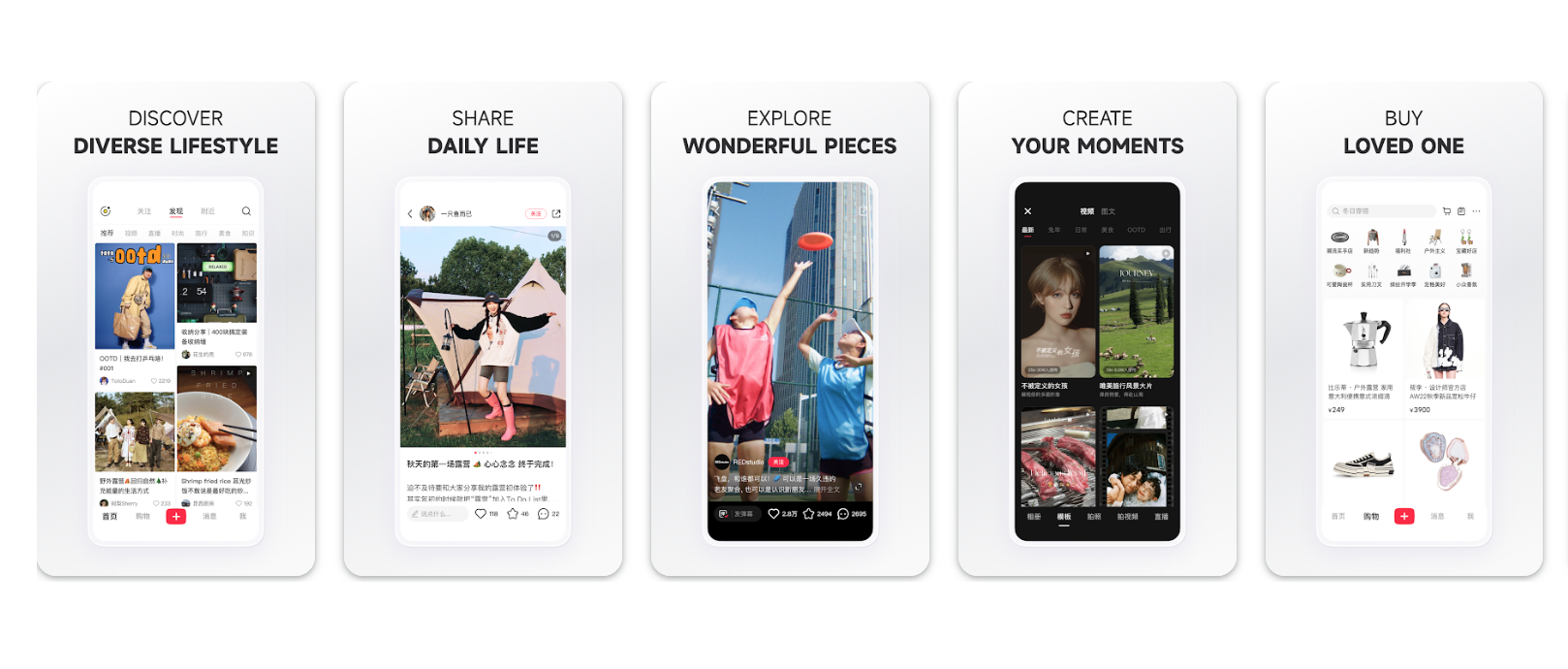With latest hit Lemon8, ByteDance again learns from the China playbook
The app strikes a great resemblance to Xiaohongshu, a Chinese social media platform with 260M MAUs

Amid a wave of heated debate over whether TikTok should be banned, another ByteDance product, Lemon8, has popped up and quickly climbed into the top 10 on America’s app stores.
Lemon8’s sudden rise is reminiscent of TikTok’s early-day growth. At the time Vine had already pioneered short-video sharing in the U.S., but TikTok took the media format to the next level through its content recommendation algorithms, a system that had proven immensely successful in China for its sister app, Douyin.
Some industry observers are now describing Lemon8 as something at the crossroad of Instagram, Pinterest and Amazon, but those familiar with the Chinese internet ecosystem would immediately recognize that the app is an instance of “copy-from-China.”
For much of China’s early internet history, entrepreneurs found inspiration in trends with strong momentum in the U.S. and built something comparable in China, giving rise to the country’s answers to Google, Facebook and the likes. That practice is still here, as indicated by the clutch of companies that express their ambitions to become China’s OpenAI; but a reversal of the trend is also taking shape as China’s homegrown tech talent becomes more sophisticated and comes up with increasingly novel services that don’t yet exist abroad.
At a glance, Lemon8’s photo-heavy layout and peer-to-peer reviews strike a great resemblance to Xiaohongshu, the Chinese social commerce platform with 260 million monthly active users. Xiaohongshu, which means “Little Red Book,” has over the past decade become the go-to online community for Chinese youngsters to learn life hacks in areas ranging from maternity health and surviving centralized quarantine in China to finding the best Chinese restaurants in Düsseldorf.
Bike sharing, live shopping and social commerce are a just few Chinese internet business models that have found users abroad. Xiaohongshu has dabbled in other Asian markets through Uniik and Spark, but neither took off. Now ByteDance is taking the playbook of Xiaohongshu westward, mirroring what TikTok has done with learning from Douyin’s model back home.
The little red playbook

Image Credits: Xiaohongshu
Founded as a platform for sharing overseas shopping guides, Xiaohongshu has mostly kept its focus on corralling practical information. Posts are arranged in a Pinterest-like grid but ranked partly by the number of “saves” they get. And unlike Instagram, there’s little competition to post the most glamorous photos. Rather, images are used to contextualize the notes posted by users, such as a COVID-19 PCR result needed to board a flight to China.
Rather than favoring professionally made influencer posts, the app encourages the discovery of long-tail content and stresses relevance over entertainment. When users are on Xiaohongshu, they are experiencing what’s called “zhongcao,” literally “planting grass,” a concept popularized by the platform to convey the effect of wanting to buy something after seeing someone else, whether a friend or influencer, recommends it.
Of Xiaohongshu’s 260 million MAUs, 69 million of them are content creators, the company said at a recent event. Seventy percent of its users are female and born after 1990. Most of its users live in China’s more prosperous, top-tier cities. At its peak, the company’s valuation reached $20 billion but reportedly dropped to $10-$16 billion last year as China’s tech crackdown dampened investor confidence.
It’s too early to say if Lemon8 can bring the zhongcao culture to the U.S. and beyond. For now, most of the app’s traction seems to stem largely from splashy advertisements and influencer endorsement through TikTok.
There are also signs that Lemon8 is paying influencers to post content. This is a common practice seen amongst Chinese social media platforms, including Douyin. But this might also be the biggest difference that separates Lemon8 from Xiaohongshu, which has rarely shelled out large subsidies to influencers. Authenticity, many argue, is the reason Xiaohongshu’s content has stood the test of time.
In its infancy, Lemon8 is probably still far from thinking about monetization, but it’d be interesting to see what steps it takes to make money if and when the app accumulates a sizable user base. It might look to Xiaohongshu, which currently monetizes through ads and e-commerce commissions. Of course, it’s never easy to simply transport an existing business model from one country to another, be it copy to or from China. Even ByteDance has struggled to evangelize live shopping, which is now driving a big chunk of Douyin’s China revenues, in Western countries.

